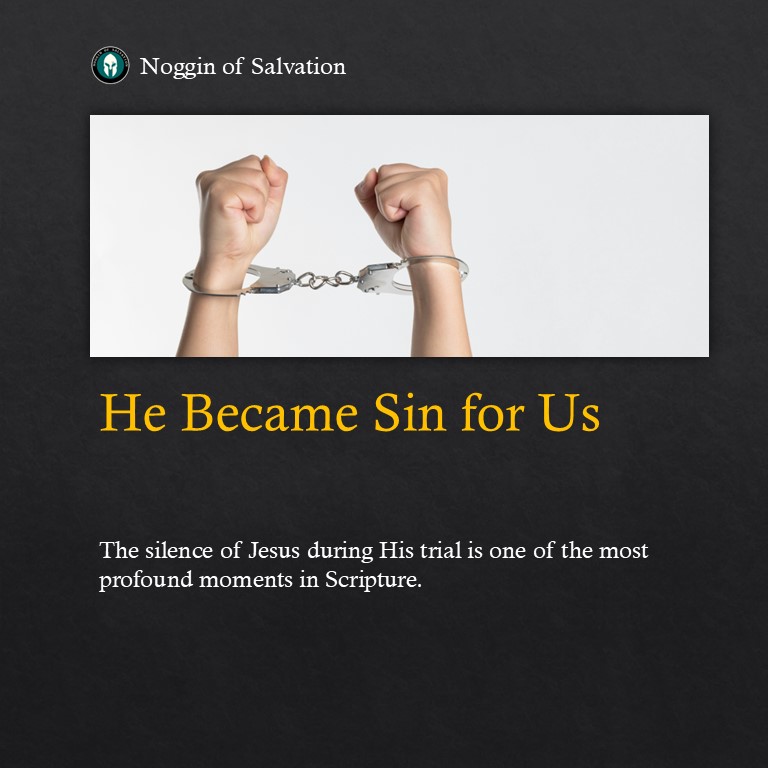Jesus Died For Our Sins
The concept that Jesus Christ died for the sins of humanity is a central tenet of Christian theology, deeply rooted in both the Old and New Testaments of the Bible. This belief is underscored by several key scriptures that highlight the sacrificial nature of Jesus’ death and its redemptive power for humankind. Below, we explore these pivotal passages and their significance.
Prophecy in the Old Testament
The foundation for the belief in Jesus’ sacrificial death can be traced back to the Old Testament. One of the most profound prophecies concerning the Messiah’s suffering is found in the Book of Isaiah:
Isaiah 53:5:
“But he was pierced for our transgressions, he was crushed for our iniquities; the punishment that brought us peace was on him, and by his wounds we are healed.”
This verse vividly depicts the Messiah’s suffering and the purpose behind it – to atone for the sins of others. Isaiah speaks of a servant who will bear the pain and punishment meant for sinners, thereby bringing them peace and healing.
New Testament Affirmation
The New Testament builds upon the Old Testament prophecies, presenting Jesus as the fulfillment of these messianic predictions. John the Baptist identifies Jesus as the sacrificial Lamb:
John 1:29:
“The next day John saw Jesus coming toward him and said, ‘Look, the Lamb of God, who takes away the sin of the world!'”
John’s declaration underscores Jesus’ role as a divine sacrificial offering, intended to remove the sins of humanity.
The Apostle Paul, in his letter to the Romans, explicitly states the purpose and significance of Jesus’ death:
Romans 5:8:
“But God demonstrates his own love for us in this: While we were still sinners, Christ died for us.”
This verse emphasizes God’s love and grace, highlighting that Jesus’ sacrificial death occurred even while humanity remained in sin, underscoring the unmerited nature of this divine gift.
Paul further reaffirms this core belief in his correspondence with the Corinthians:
1 Corinthians 15:3:
“For what I received I passed on to you as of first importance: that Christ died for our sins according to the Scriptures,”
Paul refers to this truth as of “first importance,” indicating its foundational place in Christian doctrine. He reminds the believers that Christ’s death was prophesied in the Scriptures and fulfilled according to divine plan.
Apostolic Teachings
The Apostle Peter also elucidates the redemptive suffering of Christ, drawing attention to the personal and collective implications of His sacrifice:
1 Peter 2:24:
“He himself bore our sins” in his body on the cross, so that we might die to sins and live for righteousness; “by his wounds you have been healed.”
Peter echoes Isaiah’s prophecy, stressing that Jesus bore the sins of humanity on the cross, enabling believers to renounce sin and embrace a life of righteousness.
Finally, the Apostle John encapsulates the universal scope of Jesus’ atoning sacrifice:
1 John 2:2:
“He is the atoning sacrifice for our sins, and not only for ours but also for the sins of the whole world.”
John emphasizes that Jesus’ sacrificial act is not limited to a specific group but is available to all of humanity, highlighting the inclusive nature of His redemptive work.
Conclusion
The belief that Jesus died for our sins is thoroughly supported by biblical scriptures, forming a cohesive narrative from prophecy to fulfillment. These passages collectively underscore the significance of Jesus’ death as a divine act of love and sacrifice, intended to bring about the forgiveness of sins and reconciliation between God and humanity. Through these scriptures, believers find assurance in the transformative power of Jesus’ sacrificial death, which remains a cornerstone of Christian faith.






